I realise I am rather stretching the LoTR metaphors to, and probably past, the breaking point, with respect to visiting Russia, but I think it is worth taking some time to sit down and write about what it now takes to visit Mordor. Things have changed dramatically in the past 3 years (duh), and visiting Russia as a Westerner is now very difficult – though, it must be said, NOT because the Russians have made it so. The difficulties lie almost ENTIRELY with Western policy toward Russia, and the insane MUH SANKSHUNS!!!!!!!, which promised much but delivered little, and actually backfired pretty spectacularly.
Those with the wit, will, and – probably most importantly – funds to do it, can still visit Russia. I recommend as many Westerners as possible visit it, to understand precisely what the country is all about, and to penetrate the veil of lies and bullshit the Western presstitutes keep trying to feed us.
Having been there many times, I can say without exaggeration that a trip to Russia will change the way you see the world, completely and irreversibly. I know of no other country on Earth where people who have never been there, tell so many lies about it, and where the veil of nonsense surrounding it is so difficult to penetrate.
The strange thing is, the Russians make no effort whatsoever to obscure the truth about their country. They give out tourist visas in spades. Their media is – or was – readily accessible to the outside world. Before the start of the Special Military Operation, if you wanted to learn anything about Russia, all you had to do was go to Yandex or RT and look it up.
Today, things are rather different. Getting there is much harder. The West has dropped an Iron Curtain between itself and Russia – but this time, it is the West, not the Russians, who are suffering.
Nonetheless, avenues exist for the traveller determined and resourceful enough to take the time and effort to go. I am writing this down here for the record, so people who are curious enough to stretch themselves out of their comfort zone, can consider going there to see for themselves what life is really like over in Mordor. (OK, I’ll stop soon, I promise.)
Learning Orcish
Before you leave, you MUST learn the Cyrillic alphabet, and you MUST be able to do at least basic things – like asking for directions, figuring out prices, ordering food, and paying for things. o you need to know how to count, and how to read.
This is not easy. Russian is a tricky language – though a surprisingly logical and structured one. There are numerous rules to memorise – but that is not actually the difficult part. The really tough part is the vocabulary, and of course there is the challenge of actually constructing grammatically correct sentences. That last can only happen with practice.
For those so inclined to learn the language – which is a beautiful one, for all of its intricacies and challenges – I recommend the following book:
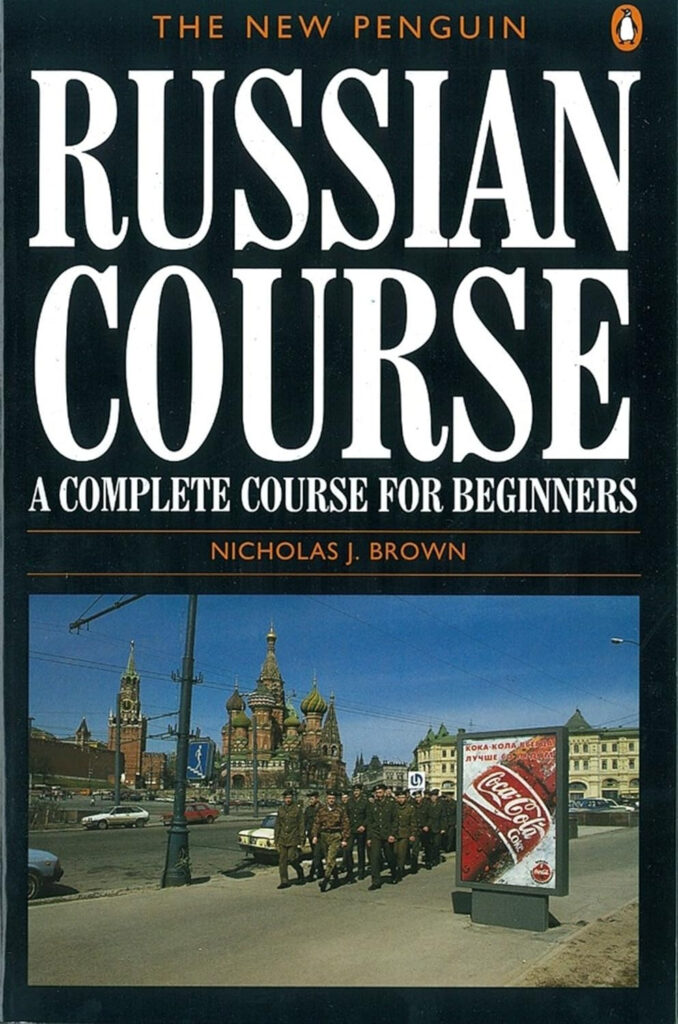
For spoken-word and listening practice, I recommend RussianPod 101, which offers both comuter-based and phone-based podcasts thta you can use to increase your vocabulary and understanding of common Russian words and phrases.
Papers Please
So, having decided to go to Russia, how do you go about it, especially nowadays?
Remember what I wrote above, about how the Russians hand out tourist visas by the armful? Well, that is still true – but getting one is harder, because the West has made it so.
Tourist Visa
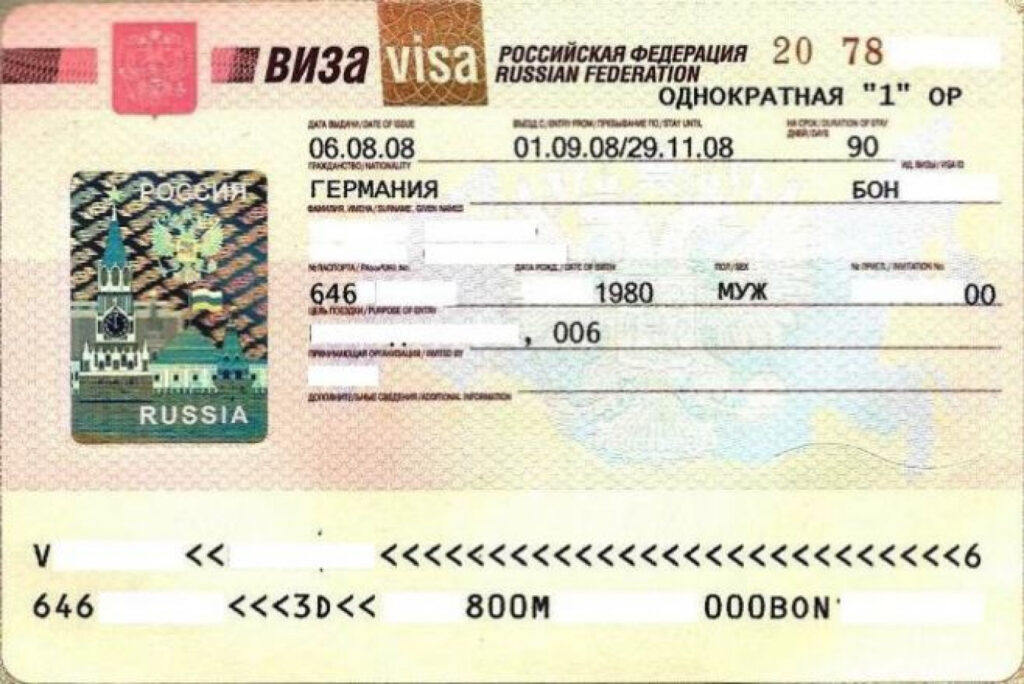
Back before February 2022, the procedure for getting a visa to Russia was pretty simple. You needed a приглашение (invitation) from a hotel, tour company, or business organisation – and actually, all you really needed to do was go to Russia Support and purchase a visa invitation letter. You then needed to provide health insurance valid for the entire duration of your visit, plus a passport-sized photo, a completed application, and a couple of other minor sundries.
It was actually a pretty easy process – far less painful than applying for a Schengen, US, or UK visa.
Today, the procedure is basically the same – go to the relevant Russian MFA website, fill in the necessary form, and submit all of your documents.
The tricky part, though, lies in booking a hotel – because Booking.com, and most of the other Western booking sites, have stopped servicing Russia.
You can get around this by using a Russian booking site, like Ostrovok, which you can still access outside of Russia in Western countries, without needing a VPN.
The cost of the tourist visa invitation is about US$15, last time I checked (which was a while ago). The cost of the visa application itself ranges from US$35-60, depending on your citizenship and where you apply. If we use an Americanism – “soup to nuts”, as it were – the total cost is around US$80-100. This guide gives you the skinny on what you need to do.
Business Visa
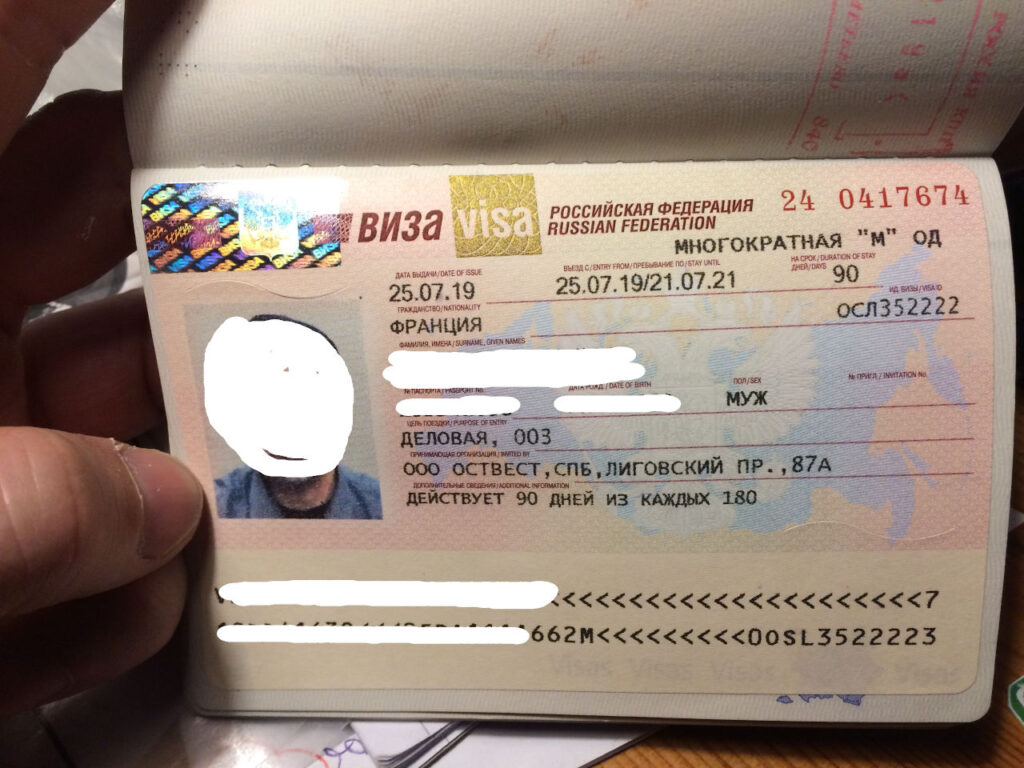
The Russian “business visa” actually has nothing to do with businessing, of any kind. It is, in fact, their equivalent of an EU Schengen visa, which allows furriners the right to enter Russia anytime, anywhere, for up to 90 days out of every 180.
The application process is identical to that of the tourist visa – you can get the same invitation letter, from the same website, for a business visa, and you then simply have to apply for that via the online portal. It is more expensive – as you would expect, since it confers rather more substantial freedoms to enter and exit Russia.
E-Visa
Applying for those two visa classes is time-consuming, to say the least. If you are in a Western country, you have to go to a Russian consulate or visa application centre, hand over all of your documents, and then wait at least 2 weeks – and as many as 5 – before you can get your visa. The situation is dramatically worse in some countries, like the FUSA, where the local consulates have almost all shut down. (You can thank President Trump for that one – for all the good he did, his anti-Russian policies were AMAZINGLY stupid and short-sighted.)
So, if you are living in a Western/NATO-aligned country, you are basically SOL.
Or rather, you were. Things have changed substantially for the better.
Back in July, the Russians finally introduced their long-delayed e-visa system, which allows citizens of 56 countries (as of this writing) to go through a very simple visa regime. All you have to do is fill in an online application form, submit a passport-sized photograph and scans of your passport, and pay a fee.
And that’s IT.
The system does EXACTLY what it says on the tin – they promise to get you an e-visa via email in 4 days, and they do PRECISELY that. They even check your application for you before confirming they can process it, so you always have a chance to revise any details you might have messed up slightly.
This visa gives you the right to enter Russia for 16 days. Your entry and exit dates count as one day each, so in reality, you get 14 full days to stay in and travel through Russia – without restrictions. You can travel anywhere within the country, as you please, unmolested. Just make sure you always have your e-visa with you somewhere, as you may be asked (usually quite politely) by Russian police or authorities for your papers, especially if you obviously look or sound foreign.
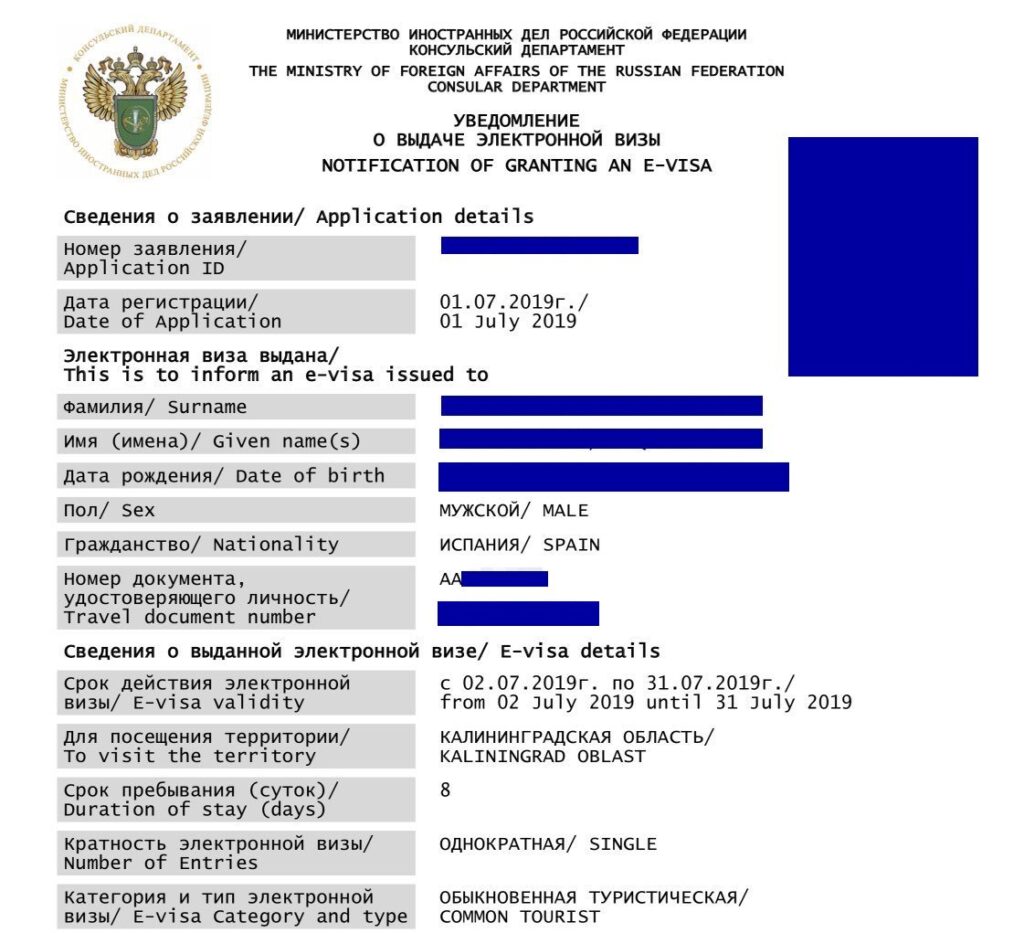
There are two interesting observations I have about their e-visa system.
First, they use a Chinese company to handle payment processing. This is unsurprising, given MUH SANKSHUNS!!! by the !@#$%^&* idiots ruining the West right now, which prevent the use of VISA, Mastercard, and AMEX cards when paying for basic services. So, the site charges you in Chinese yuan. The total fee comes to about US$52 or so, which I have to say is pretty reasonable.
Second, the list of nationalities who can apply for this visa explicitly includes almost all of the European nations – including Poland, the Baltics, and the Mezzes, all of whom are directly hostile to and sanctioning Russia right now.
This should tell you something about the Russian mindset. They do not see Europeans as their enemies, exactly – in fact, they want Europeans to come to Russia to understand just how well they are preserving the greatest aspects of Europe’s rapidly disintegrating and bygone culture.
If you are from the FUSA, the UK, the Anzacs, South Korea (where they eat dogs), or Canuckistan, however, you are definitely SOL on the e-visa. Hey, it’s your own damn fault – y’all keep electing pricks who want to destroy Russia, and even if you, personally, do not, your dumbocratic systems inevitably put ardent Russophobes and racists in power who will do it anyway.
If You MUST Do Something Stupid, Like Flying…

So, suppose you now have a Russian visa. That’s Problem #1 solved.
Problem #2, however, involves actually GETTING there. And that involves succumbing to the insane urge to blast through the skies in a pressurised metal tube. (I firmly believe that, if God meant for Man to fly, He would have given us wings.)
This is much harder than it used to be. Back when I lived in the US, you could hop on direct Aeroflot flights to Moscow at least once a day – and they were damn good flights, too, with excellent service, good food, and (relatively) spacious seats.
British Airways and Aeroflot used to fly direct from London to Moscow like 4 times a day. The same was true for flights from other European capitals.
However, within 5 days of the Special Military Operation kicking off, every European nation slammed its doors shut to Russian airlines, as did the FUSA, Canuckistan, Japan, and so on.
So, these days, if you want to travel from the West – say, Warsaw, or London, or any other European city – to Russia, you MUST go via a third country.
In practice, the list of such countries is quite small. You have to go via Turkey, the UAE (usually Dubai), Serbia, or (God help you) Egypt.
The other problem is, because the national carriers of these countries now have an essential monopoly over the travel routes, and because those routes now have much lower traffic, they charge you arm-leg-firstborn for the privilege of travelling to Russia.
If you must travel in luxury, then by all means, take Turkish Airlines through Istanbul, or Emirates via Dubai, or Air Serbia via Belgrade. (The latter is a pretty poor airline, by the way – I used them for my trip to Belgrade earlier this year, and was not impressed.)
However, if you want to save a decent amount of money, and you do not mind spending a little time in an airport hotel or bumming around Istanbul, then do what I did and take Pegasus Airlines from Sabiha Gokcen to Vnukovo or Domodedovo. For a budget airline, I have to say, Pegasus is actually quite good.
Buying and Selling
OK, so now you are IN Russia. That is Problem #2 solved.
But now, you face Problem #3 – and it is perhaps the worst one of all: paying for stuff.
As I stated above, MUH WESTURN SANKSHUNS!!! have resulted in all of the large Western payment providers shutting down their services in Russia, which means you CANNOT use a Western VISA, Mastercard, AMEX, Diner’s Club, or JCB card anywhere in Russia.
The Russians prepared for this eventuality a long time ago, internally. Back in 2014, when Russia annexed Crimea with barely a shot fired, the Western nations YEETED several big Russian banks from the SWIFT international transfer system – the world’s largest, by a couple of orders of magnitude, and by far its most important. At that time, there was literally no alternative to SWIFT, and no option other than to use Western payment systems and rails.
So the Russians created their own.
Today, the Russians have their own SPFS (Система Передачи Финансовых Сообщений) messaging system, which allows their banks to transfer money nationally to any other bank in the Russian network, and even globally to other banks. They also have their own equivalent of Western rapid payments systems, like the UK’s Faster Payments, with their SBP (Система Быстрых Платежей). And they have their own domestic payments settlement system for cards and mobile apps, upon which they built their MIR card.
In fact, back before 2022, the Russians required all Western payments providers to change into “aggregators”, whereby the Russian payments system processed all VISA/MA/AMEX payments, and then the big card companies simply consolidated all of the relevant fees and carve-outs at the end of every day into their own P&Ls. It was, on balance, an elegant solution to an amazingly stupid problem introduced by astonishingly dumb people in the West.
All of that is nice and all, of course, but this still leaves you, the tourist, with a seemingly intractable problem: how the HELL do you pay for anything?!?!?!
Cash is King
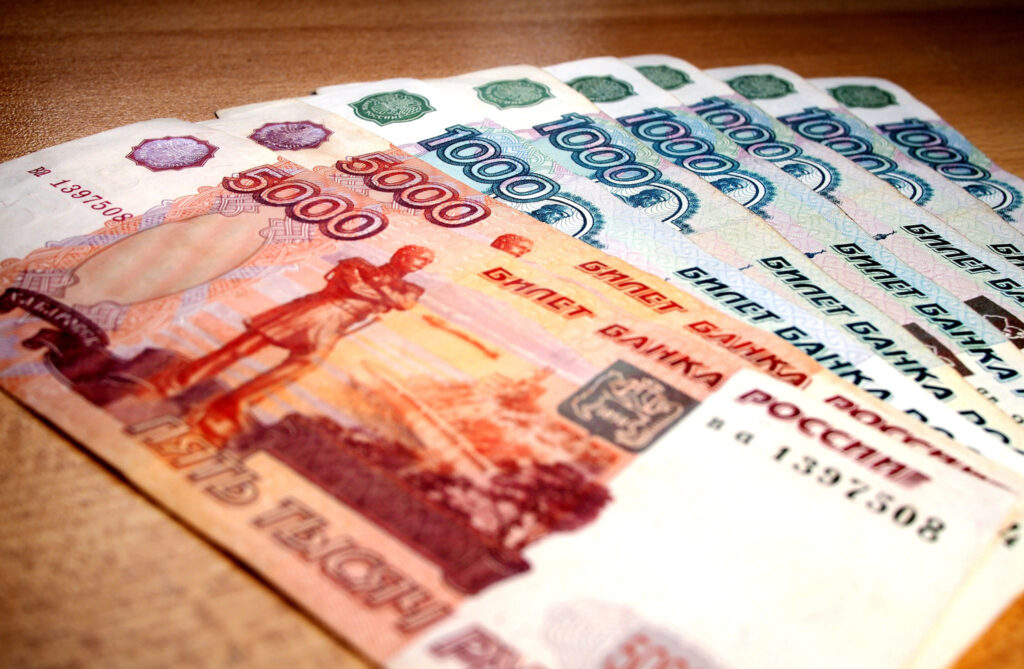
The most obvious solution is to get some cash and use that. You can do so via any moneychanger in Russia. Have a care, though – if you do, you WILL get absolutely starched on the rates.
For example, if you were to try to trade USD for RUB at the FX counter in Vnukovo Airport, you would get, as of late August, 75 RUB for 1 USD.
The actual, official exchange rate at that time, from the Central Bank of Russia, was closer to 100 RUB for 1 USD.
This gives new meaning to the phrase, “bent over a barrel and raped with a stack of quarters”, I think.
A better alternative is to get your money changed BEFORE you depart for Russia, preferably in Turkey. The morning of my flight to Moscow, I simply wandered over to the exchange booth on the second floor of Sabiha Gokcen Airport (near Departures), and requested exchange for my Western currency into rubles.
I got a pretty good rate, too – the spread was only about 2-3%, rather than 25%.
If you do make such an exchange, be aware that carrying large amounts of cash is not convenient, easy, or simple – which, of course, is precisely why so many of us go cashless these days.
The Way of MIR

The Russians ARE, as of this writing, working on a way to create a “virtual MIR” card that you can download onto your phone as an app, pre-load with digital rubles before you travel, and then pay for stuff using NFC functions. However, that appears to be a long way off from reality – they still have to work out the mechanics of it, because they will need to build out their own digital ruble CBDC (Central Bank Digital Currency) before they do it.
(Having studied CBDCs to some depth, I assure you, this is HARD to build – not to mention, time-consuming, expensive, and, for most Western nations, simply not worth it, unless your objective is to exercise complete control over how people spend their own money.)
There is simply no getting around the fact, therefore, that if you want to pay for stuff in Russia, you MUST get a MIR card.
That leads to another problem:
How in God’s name do you get one?
Fear not, it is not quite as terrible as you might think.
Getting Registered
A furriner can open a Russian bank account with surprising ease. All you need is your international passport, the immigration card that you get upon entering the country… and the Russian registration form.
Those last two things are not the same, by the way. This is the immigration card. You get one half, the passport control officer keeps the other – and scans both into a computer as well. (Don’t ask me why – Russian bureaucracy is an especially mystifying kind.)
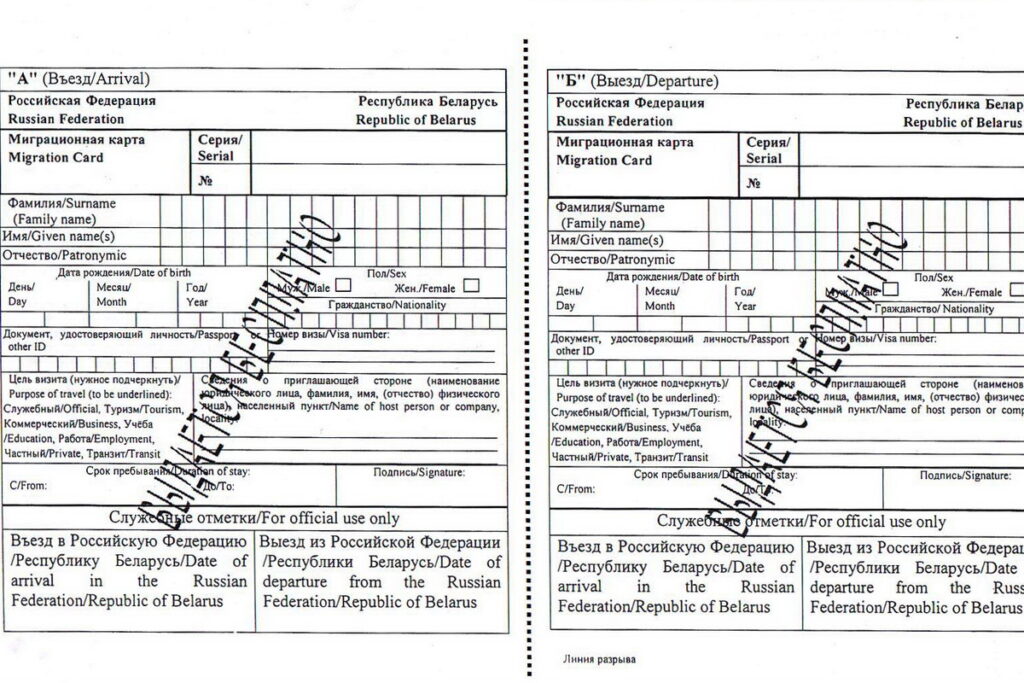
This, by contrast, is the actual registration card:

This last one is a little difficult to obtain, and it is a legacy of the stupid bureaucracy that still pervades Russia to this day – a holdover from the bad old days of the USSR. It is essentially a card that provides details of where you are staying, and for how long.
The Russian authorities REQUIRE you to register your place of stay, IF you stay there for 7 or more days. If your stay is of shorter duration, then you do not need such a form. You must get a new form for every long-stay location, so if you stay for 2 weeks and change hotels once, you have to get a new registration form.
The key thing to understand about this form is, it is the responsibility of the hosting organisation or hotel to get this for you. If you are staying at a hotel, you can ask the hotel staff themselves to register you – they will typically get you this form in a day, maybe two.
But, if you are staying with a Russian friend or relative – or, worse, in a guest-house or apartment – then you have to get your friend, relative, or landlord to do this for you. They can do it online and pick up the relevant form at a Russian Post Office (Почта) in under a week, but it is still a time-consuming affair.
Once you have this, though, just walk into any Russian bank branch and ask them to open an account for you, and specifically ask them to provide you with a MIR debit card. They can do this amazingly quickly – within about 20 minutes.
All you need is your passport, entry slip (from passport control at the border), registration card, and – critically – a Russian phone number. I will get to that particular problem below.
Since you are a Westerner, you will need to transfer money to that new bank account – which means you need to open an account with a bank that is still connected to SWIFT. The best such banks are the Western-affiliated ones – Sberbank, VTB, Alfa, Tinkoff, and about a dozen others are right out, there is no way to transfer money from the West to them.
Instead, I recommend Raiffeisenbank, which has branches in Russia and is still part of the SWIFT system.

They have a fair few branches all over Moscow – lookup the nearest one and go. But don’t waste your time if you do not have the registration form.
The Paperless Alternative
There is, again, a problem here – do you notice a pattern with this?
Recall what I wrote above about the Russian registration paper. You need one if you stay anywhere for at least 7 days. Suppose you are travelling to Moscow, then on to another Russian republic for less than 6 days, then back to Moscow, then out again – which is precisely what I did.
What then? You don’t have enough time to get a Russian migration card.
The answer is to open up an account with UniCredit, which is an Italian bank that has branches in Moscow. There are two of them – one is on Leninskiy Prospekt, right here in southern Moscow.

Unlike Raiffeisenbank, which I also tried, they do not require the migration card. It is of course better if you have it, but they do not specifically demand it.
As a result of all of this, I now have a MIR card, and a bank account based in Russia.
And, yes, I plan to send money to it – moving (some) assets out of the ever-more-rapacious West, to a country that self-evidently has rather more respect for actual rule-of-law.
Money Transfers

So, you now have a Russian bank account. How do you deposit money into it?
There very few global money transfer services, these days, that are willing to send money to Russian recipients. Most of the big ones – PayPal, Western Union, Paysend, XE, Wise, etc. – are complete spineless virtue-signalling cowards and have followed the big card companies in refusing to allow money transfers to Russia.
Paysend allowed it for about a month after the start of the SMO – and then cucked out. (Their co-founder is an Azeri living in the West, which explains a lot.)
The only company I have found that permits rapid card-to-card transfers to Russian accounts is a Cypriot entity called Profee, which is the public trading name of Sibilla Solutions. They are very good, both in terms of speed and customer service, and I thoroughly recommend them. Just one problem – their rates are not great, but then, they essentially have a monopoly in the market, so that is hardly surprising.
Freedumb of Disinformation
OK, the last piece of the puzzle – how do you access TEH INNARWEBZ in Russia, given the SANKSHUNS!!! and all of the other nonsense happening there?
Well, for one thing, you MUST get yourself a Russian SIM card. This is actually really easy – you can buy a prepaid one for Megafon, MTS, or Beeline at literally any airport on your way to the taxi stands, or at any big rail station, or in any Russian shopping mall.

Have a care: without a Russian SIM card, you cannot easily access their domestic public WiFi services on their metro, in shopping malls, or pretty much anywhere else. This is because, in Russia, you have to provide a Russian phone number to register on their networks. Once you do so, then life is good.
What about accessing Western sites, like Facebuchenwald, Instaham, and so on? For that, you MUST use a VPN while in Russia – there is simply no other way.
The problem I have found there is, NordVPN and, to my knowledge, Surfshark DO NOT WORK in Russia. This is because they do not have servers in Russia – they got all pissy about the Russian regulation, passed back in, I think, 2018, telling Western companies to keep data about Russian citizens on Russian servers, and threw their toys out of the pram and left.

One of the few VPN companies that does work in Russia is AdGuard. So, before your trip, buy a one-month subscription for them, and off you go. (They also have a free version that allows you up to 3GB of data.)
With that, you will be able to access anything outside of Russia as you see fit – Roskomnadzor, their telecoms and media regulator, has threatened to stop VPN services in Russia for YEARS, but has done almost nothing whatsoever to back that up, so you will be just fine.
Crossing the Wall
Once you go to Russia, your worldview will change forever – I can assure you of this personally. Suppose, then, you might want to move there permanently. Is that even possible?
Answer: yes, BUT with extreme difficulty.
Essentially, it is all but impossible unless you are actually married to a Russian citizen, you serve in the Russian military as a foreign volunteer, or you go there under a very special Russian immigration quota.
You see, unlike Western nations, the Russians actually believe in things like borders, and defend them assiduously. So, if you do want to move to Russia, you actually have to put quite a lot of time, effort, and money into it.
I will not go into chapter-and-verse about that aspect of things, not least because I have almost zero understanding of the process. Tim Kirby, however, has gone through that process. I have my disagreements with Mr. Kirby on a few things, but I will say that he has done a pretty good job of assembling a solid guide on how to do it.
Note that Mr. Kirby is the head of the “American Village” project in Russia, which is all about setting up, well, pretty much exactly what it sounds like, in a suburb of Moscow. I have mixed feelings about that – I like Americans a lot, but IN AMERICA, not elsewhere, and the last thing Russia needs is American parochialism, jingoism, and so-called “culture” polluting their waters. They have had quite enough of that poison through American mass media over the years, and are only now successfully detoxing from that sewage.
Also – and I DO write from very real personal experience here – living in Russia is NOT easy. At all. I was stuck there during the Convid lockdowns during 2020, and I ended up spending 8 months in the country. There is something profoundly alien about Russia, even for someone as Westernised as me – I think it has to do with the Russian language, which is very, very difficult to learn, and the Russian winter weather, which is like no winter I have ever experienced anywhere else.
Do not mistake me. Russia is an incredible country. I consider it to be the true Ark of Western Civilisation – preserving all that was best about the West, protecting it from the monumental stupidity and barbarism of the modren West, and guarding it so that one day it might flower once again in the shattered remains of the Western world.
But, if you choose to live in Russia, be aware, you MUST leave your old life behind. Completely. It is like going into Witness Protection, up to a point – you literally have to turn your back on everything Western, almost for good.
Conclusion – Life is Peaceful There…
This poast is my attempt to preserve for posterity all of my knowledge, in the form of a giant brain dump, of the ways and means by which a Westerner can travel to Russia in the post-Ukraine world. I do not see many of these points changing anytime soon. The reality is, the Western world hates Russia and wants to see it destroyed.
I do not. I love Russia, and the Russian people, who are warm, kind, decent, and humane in ways that most people simply cannot understand until they encounter these attributes in person.
I will say this, though: the Russians no longer look upon the West with envy or respect. They look at the Western world with utter CONTEMPT nowadays.
They have rediscovered their sense of self, their national pride, and their destiny as a great nation. They understand now the reality of Russia as a civilisation-state, a unique nation in history that has its own internal reality and pace of life. And they have no interest whatsoever in tolerating Western degeneracy, stupidity, and foolishness.
Russians have absolutely zero patience for homosexuality – there ARE gays in Russia, but they keep their degeneracy to themselves and VERY much underground, as is right and proper. Russians are openly extremely hostile to the mental illness of transgender ideology – their Constitution now enshrines marriage as a union of one man and one woman.
In short, those who believe the Russian national spirit is easily defeated or destabilised, are in for one hell of a rude shock. They need to go to Russia to understand just how wrong they really are. This is not a people or a nation that will be defeated in an existential crisis – like the one they are facing now.
They will preserve their faith, families, lands, culture, history, and language for themselves – as is right and just for ANY true nation. And, make no mistake, Russia IS a true NATION, in a way that no Western “country” is anymore.
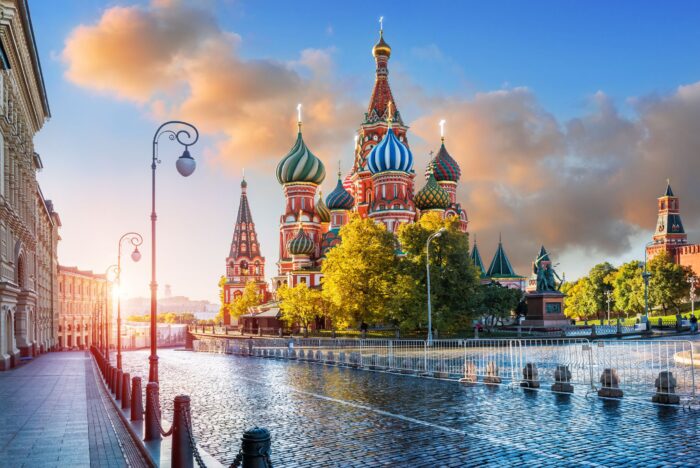














0 Comments